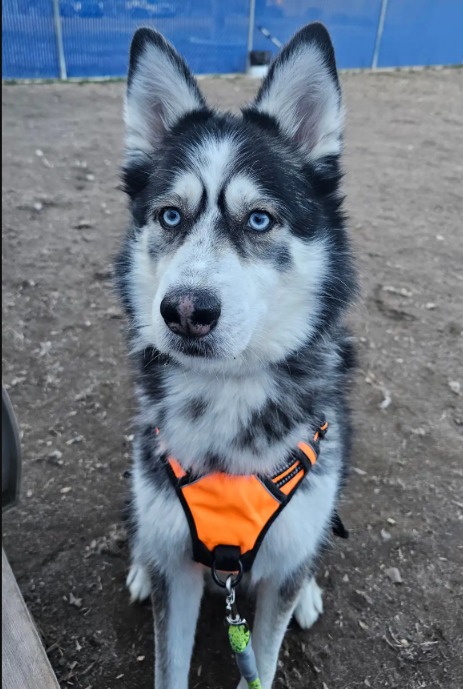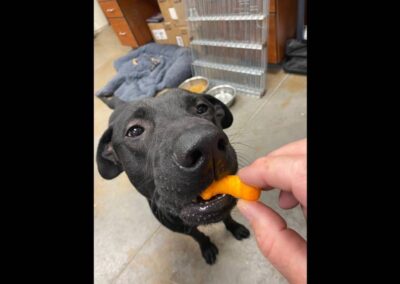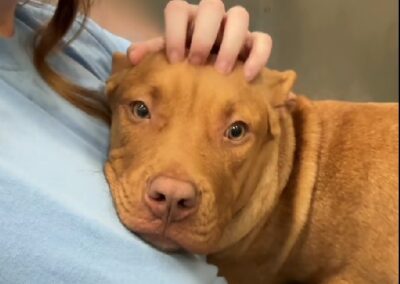
Sometimes we think blood ties mean unbreakable loyalty.
But dogs, like people, can grow apart — and when that rift happens, even siblings might find themselves in separate futures.
That’s exactly the story of Ozzy Pawsborne and Bark Wahlberg, two husky-mix brothers who have been caught in a heartbreaking limbo: stuck in a shelter for over a year.
These two six-year-olds landed at the Benton-Franklin Humane Society (BFHS) in Washington in May 2024.
They were surrendered by their owner after a fight erupted — shocking because they reportedly had lived peacefully together for five years prior.
The shelter calls their situation a textbook example of littermate syndrome, in which sibling dogs raised together develop behavioral issues such as aggression, separation anxiety, or codependence.
The irony is hard to ignore: two dogs who once shared a home, a routine, and presumably a bond, now find themselves competing for new homes — individually.
BFHS has publicly stated that the brothers must be adopted separately, to prevent further conflicts down the road.
Physical recovery is done — they’ve healed from the fight. But their emotional paths now diverge.

Despite their plight, staff at BFHS speak of them fondly. Ozzy is described as energetic and playful.
He loves squeaky toys, car rides, and even vanilla ice cream. Bark, by contrast, is more independent and poised, happy to run, pose, or just quietly observe.
The problem isn’t that they’re “bad” dogs. The problem is that together, they brought out tensions they could no longer manage.
And as heartbreaking as it is, forcing them to live together again would likely reopen old wounds.
So why is their story resonating—and frustrating so many potential adopters? There are a few possible reasons.
First, adoptive families tend to gravitate toward pairs or bonded dogs—“two for one” seems appealing.
But in a case like this, that same idea becomes a liability.
Second, Ozzy and Bark were outdoor dogs before arriving at the shelter, which means they may be more stoic, less eager to display affection, or slower to adjust to new homes.
That can be intimidating to adopters who want immediate connection.
What makes this story more than just sad is its subtle lesson: not all dog bonds are meant to last forever.
Sometimes, love means recognizing boundaries and acting in the best interest of both animals.
Some relationships are healthier apart. For Ozzy and Bark, safety and peace now means separate homes, so each can heal, grow, and thrive without pressure from the other.

If you’ve ever been tempted to adopt two siblings, consider the cautionary tale these brothers offer.
It doesn’t mean you shouldn’t adopt two—just that doing so responsibly means giving each dog space, identity, and room to grow.
Some experts suggest initial separation of training, socialization, and identity building from day one.
As Ozzy and Bark continue their long stay in the shelter, the hope now is that sufficiently patient, understanding homes will step forward—for each of them, separately.
Theirs is a tough ask: adopters must accept that these brothers, once inseparable, now need space apart to become the best versions of themselves.
If you’re considering adoption, think about personality, not just cuteness.
Dogs like Ozzy and Bark deserve more than a quick home—they deserve the right home, even if that means two individual ones.
Because sometimes real love is letting go—so each can be free.




Thank you for your sharing. I am worried that I lack creative ideas. It is your article that makes me full of hope. Thank you. But, I have a question, can you help me?